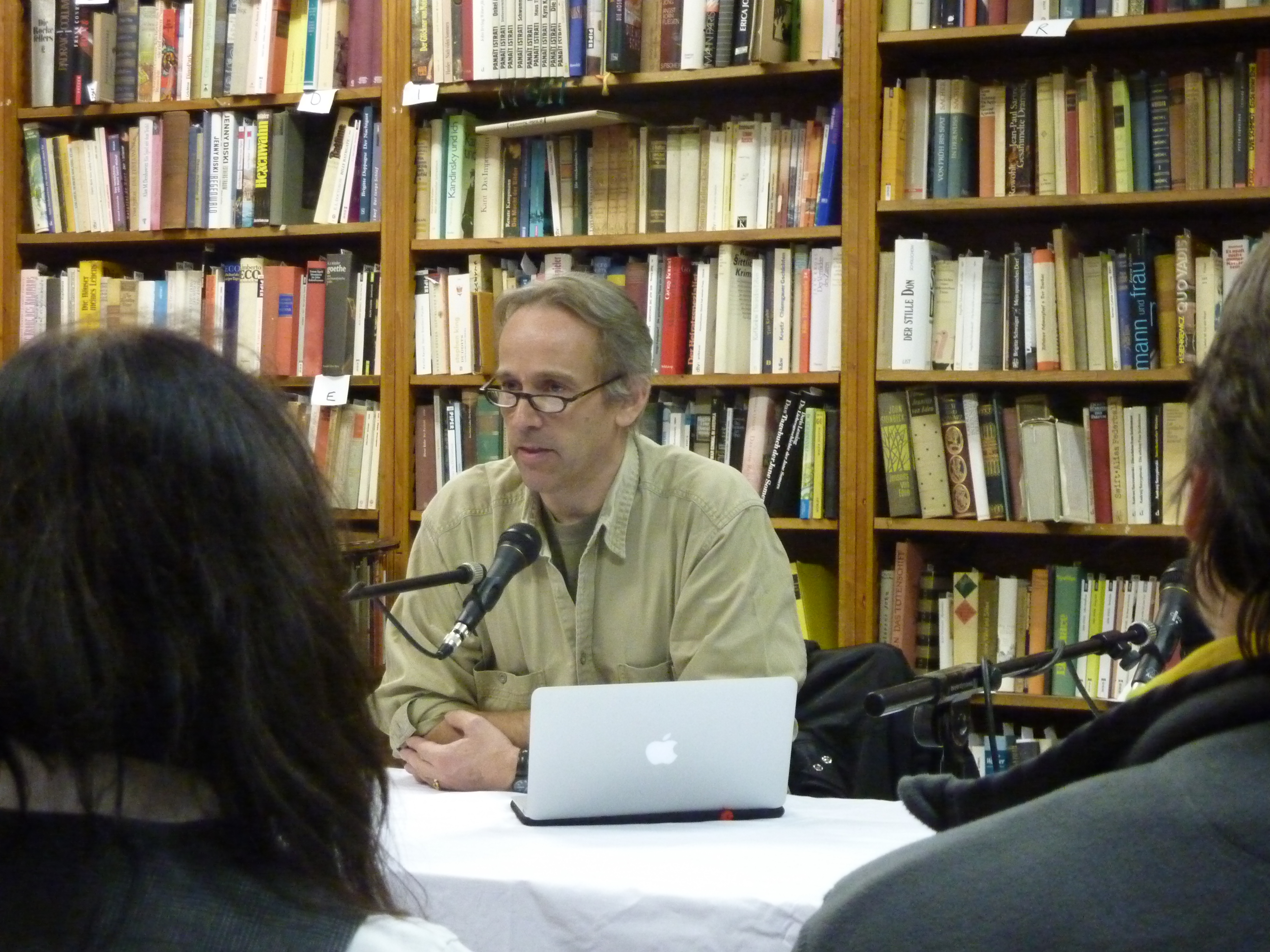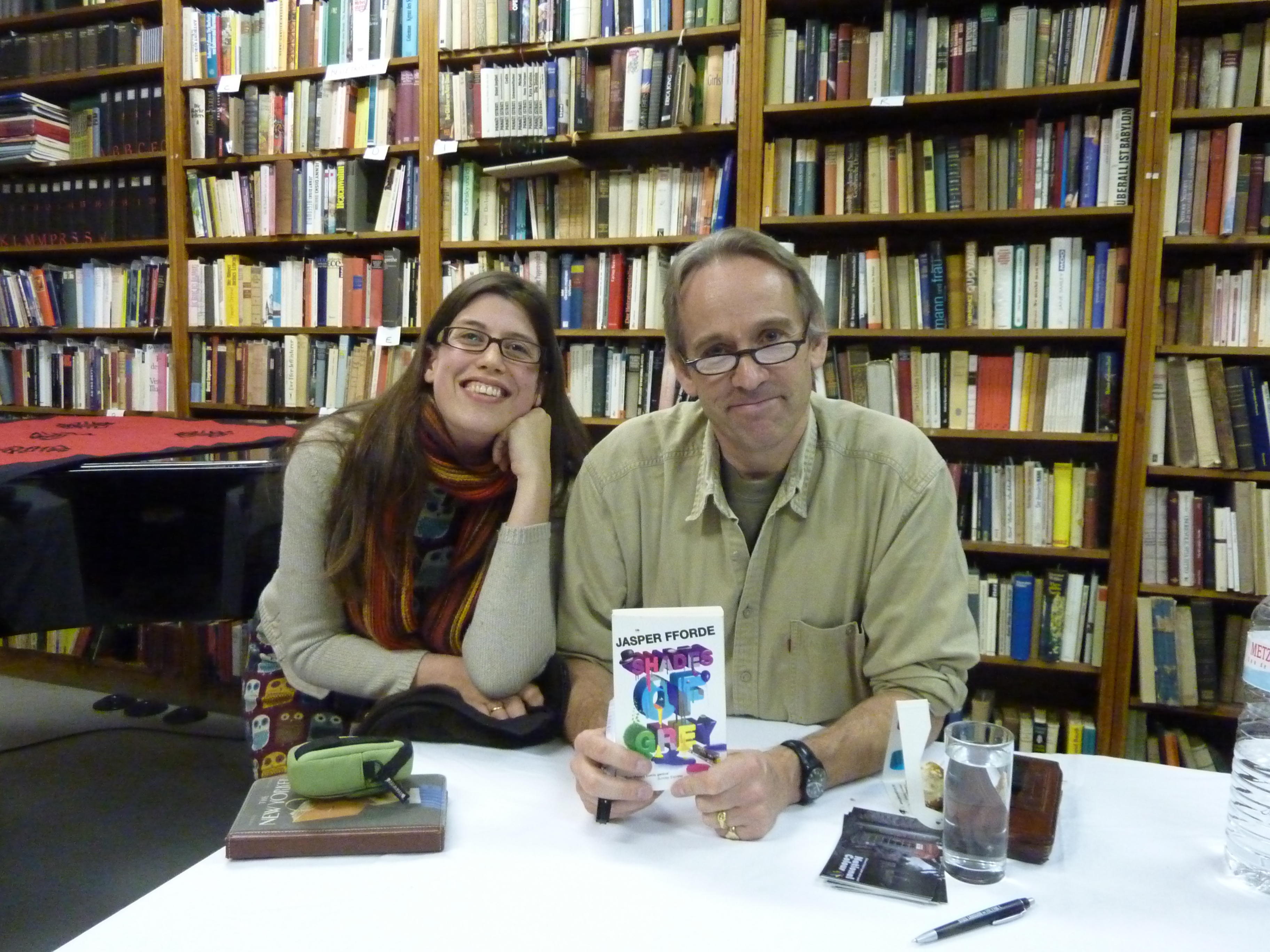My parents are not technophobes. They’re not technophiles either. They’re somewhere in between.
We had our first computer in 1985 or so. We actually went through two computers, the first with green letters on black, the second orange on black before we got our first all colors Windows computer.
I distinctly remember one program where you could enter a combination of letters and numbers and you would get beautiful patterns painted on the screen. That was the green computer. If someone could identify this program (or the computer) for me, I would be much obliged.
I also remember our printer with TWO different fonts and you could buy some kind of extension to get an additional FOUR more fonts. (We never got the extension. It was very sad.)
I do remember navigating through the file system with only the keyboard, using arrows and function keys to write stuff or play games where the monsters were Hs that you needed to crush between square blocks. It was kinda awesome. And hell, I created my first database of the CDs I owned (Or was it taped videos? Whatever.) with Quattro Pro. Yeah, you heard right. Quattro Pro. At some point in my life I knew how to work with that.
So as far as I was concerned there was always a computer in the house. My mother was less interested, but she would always hold the high score in both Solitaire and Moorhuhn. (She was crazy good at Moorhuhn.) Once she found something that she liked she would learn the exact steps she needed to get it to run and then she was happy.
I tell you all this to explain that both my parents view on computers is mostly that it’s something that helps them do something they like or need to do anyway and that’s it. My father uses it to save and listen to the recordings he makes of bats (no kidding!), my mom uses it to research antique stuff, and from what I hear (and have witnessed myself) my father spends a lot of time browsing YouTube for music videos.
A couple of months ago we got to talk about communication and social networks. Apparently my cousin had showed them my Facebook page, and though my mother has no real objections she really doesn’t see the need for something like Facebook. For her putting your personal stuff on the internet is somewhat strange and I guess she just doesn’t see the point.
My parents seem to be phone and meet people. What I mean by that is that they seem to prefer phone calls and meeting in person to email or anything socially networky. Communication via email, chat or whatever else there is on the web is a very unnatural means of communication for them.
My father does have an email address – he has two actually, but I’m not sure if he’s ever used the second one -, my mother has none. Sometimes I sent them little mails with links or just a short message about what I have been up to. I’ve learned that they don’t regularly check their mail, so whenever I sent something I am well aware that it could be a week or so before they actually read it.
What I wasn’t aware of was that the emotional reasons for the phone versus email thing would be so different from what I would have expected.
I don’t particular enjoy phone calls. I don’t know what it is exactly, but I don’t specifically like to be called or to call someone. That is not to say that I hate it with a passion, it’s just that I don’t enjoy it. I can enjoy a specific phone call and I don’t despise you for calling me. But I am not someone who calls someone up just to talk (except for my husband, my parents and my grandmother). In fact, I don’t even have a mailbox because I don’t want people to be able to leave me messages making me feel forced to call them back. Ugh. Never.
When I want to just say hello, how are you, what have you been up to, I would probably write a mail. Or post something on Facebook. Or whatever. For me that’s saying: „Hello, thought it was time to say hi again. Nothing urgent. Let’s get in touch. How are you? Reply when you find the time. Thanks. Bye.“
I thought that was the normal conception: Phone is immediate. Talk to me now. I called you. Pick up. Email is relaxed. Just thought I’d say hi. Don’t hurry. No rush.
For my parents somehow the emotion is reversed. When they get an email they feel pressured. They think they are somehow required to reply with a carefully put together mail. They feel like it’s something at least partly official or at least formal. Especially my mother, who still needs a lot of time typing, feels pushed into doing something that she doesn’t really like to do. An email, for her, is time-consuming as well. Not quite the five minutes I take to write a quick reply.
There was no special point to the discussion, but it was interesting to hear such a completely different take on way to communicate than what I feel myself. I’m not saying either of us is right or wrong. We’re both right, because it’s just a personal experience and preference of how to communicate with other people. I tried at least to make my parents understand that I was pretty sure that when someone was sending them an email it wasn’t meant to make them feel pressured for a response, probably rather the opposite.
I’m calling this the technology gap because I’m pretty sure that it’s not a generation gap. I know a lot of geeky people on the internet who are as old or older than my parents and who probably use the internet as well and heftily or even more so than I do. And I’m bad. I think it’s a technology gap. It’s a question of interest and whether you feel comfortable with delayed and somehow removed communication or if you prefer talking to someone directly. The gap will probably get closer but I’m not sure if it will go away completely. It’s probably a good thing if it doesn’t.
At least now I know a little bit more about what my parents think about communication and it actually really helps to know why they feel the way they do and why I shouldn’t expect my mother to write me a mail. It’s okay. I can call.
—
One other thing: My mother now has an Android phone and while she’s not thrilled with the touchscreen („I always touch something that I didn’t intend to touch“), she said that she planned on keeping it. She even signs up for a limited data plan whenever they’re not at home to be able to access the internet when she needs to. So I’m curious to see how that works out for her.
And another thing: I’m apparently not alone in this. I once read a blog post somewhere (I really don’t remember where) on the web, comparing phone calls to someone just walking into your living room and expecting you to interrupt whatever it was you were doing and TALK TO THEM NOW! And I was thinking, YES, YES! That’s exactly it. I guess I am just not really a phone person.
This is the original quote and below are two links (one to the quote source and one to an article of someone who shares the feeling). Enjoy.
I am one of those people. But let me explain something to you. The telephone was an aberration in human development. It was a 70 year or so period where for some reason humans decided it was socially acceptable to ring a loud bell in someone else’s life and they were expected to come running, like dogs. This was the equivalent of thinking it was okay to walk into someone’s living room and start shouting. it was never okay. It’s less okay now. Telephone calls are rude. They are interruptive. Technology has solved this brief aberration in human behavior. We have a thing now called THE TEXT MESSAGE. It is magical, non-intrusive, optional, and, just like human speech originally was meant to be, is turn based and two way. You talk. I talk next. Then you talk. And we do it when it’s convenient for both of us.


